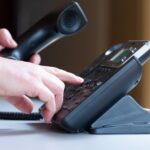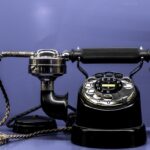In today’s digital age, phone calls from unknown numbers can spark curiosity, concern, and sometimes alarm. One such number that has recently caught the attention of many in the United Kingdom is 44 800 761 3372. This article delves into the enigma behind this caller ID, exploring the significance of the 44 area code, the nature of calls associated with this number, and common scenarios for such calls. We’ll also provide a comprehensive FAQ section for individuals who have received calls from this specific number, discuss potential risks, and offer practical advice on handling such situations with confidence.
Understanding the UK Area Code: +44
The “+44” prefix is the international dialing code for the United Kingdom. It is a code used when making calls from outside the UK to numbers within the country. This code replaces the initial “0” in the UK phone numbers when dialing from abroad. For example, a UK phone number that starts with 0800 would be dialed as +44 800 when calling from outside the UK. This prefix is a standard feature of international telephony, ensuring that calls are directed to the correct country.
The specific number in question, 44 800 761 3372, begins with “800,” which is significant. In the UK, numbers starting with 0800 (or 0808) are known as Freephone numbers. Calls to these numbers are free for the caller, making them popular for customer service lines, helplines, and business inquiries. However, the convenience of Freephone numbers can sometimes be exploited for less benign purposes, as we’ll explore later.
The Nature of Calls from 44 800 761 3372
Calls from 44 800 761 3372 can vary in nature. Some common scenarios include:
- Customer Service and Helplines: Businesses and organizations often use Freephone numbers to offer customer support. If you’ve recently engaged with a company or service, this number might be used to contact you for follow-ups, surveys, or service-related inquiries.
- Telemarketing and Sales: While many telemarketing calls are legitimate, offering products or services, they can sometimes be intrusive. In some cases, these calls may originate from businesses you’ve interacted with in the past or companies purchasing contact lists from third parties.
- Scams and Fraud: Unfortunately, not all calls from Freephone numbers are benign. Scammers often use Freephone numbers to appear credible and trustworthy, luring unsuspecting individuals into divulging personal information, making payments, or installing malicious software. This number could potentially be part of such schemes, especially if the caller’s behavior seems suspicious.
Common Scenarios and Concerns
Scenario 1: Legitimate Business Calls
If you’ve recently interacted with a company—such as making a purchase, signing up for a service, or seeking customer support—it’s possible that the call from 44 800 761 3372 is a follow-up. These calls might be for customer satisfaction surveys, service confirmations, or addressing issues you’ve raised. In such cases, the calls are usually harmless and intended to provide better service.
Scenario 2: Telemarketing and Sales Pitches
Another common scenario involves telemarketing calls. Companies often use Freephone numbers to reach out to potential customers with offers, discounts, or new product information. While not inherently harmful, these calls can be annoying, especially if they are persistent or irrelevant. Some companies may also use aggressive sales tactics, making the experience unpleasant.
Scenario 3: Scam Calls and Fraudulent Activities
The most concerning scenario involves potential scams. Scammers often mask their identities behind legitimate-looking numbers, including Freephone numbers, to deceive victims. These calls may involve:
- Phishing Scams: Callers may impersonate bank representatives, government officials, or tech support agents, attempting to gather personal information like bank details, passwords, or identification numbers.
- Tech Support Scams: Fraudsters claim to be from reputable tech companies, warning about non-existent issues on your computer or devices. They may ask for remote access to your computer or request payment for unnecessary services.
- Lottery and Prize Scams: Callers inform you that you’ve won a prize or lottery, but you must pay a fee or provide personal information to claim it.
Frequently Asked Questions (FAQs)
Q1: Who owns the number 44 800 761 3372?
The ownership of specific numbers, especially Freephone numbers, can be challenging to determine. They are often used by businesses, organizations, and sometimes individuals. It’s essential to verify the legitimacy of the caller, especially if the call was unexpected.
Q2: Is it safe to answer calls from 44 800 761 3372?
While answering the call is not inherently dangerous, exercise caution. If the caller asks for personal information or payment, it’s best to hang up and verify the authenticity of the call independently.
Q3: How can I verify if the call is legitimate?
- Check the company’s official website or contact them directly using a known and trusted number.
- Look for online reviews or reports from other individuals who may have received similar calls.
- Use reverse phone lookup services to gather more information about the number.
Q4: What should I do if I suspect a scam?
- Do not provide personal information or make any payments.
- Hang up immediately and report the number to your phone provider or local authorities.
- Block the number to prevent future calls.
Potential Risks and Safety Measures
Risks
Receiving a call from a seemingly benign number can carry several risks if it turns out to be fraudulent:
- Financial Loss: Scammers may ask for money, either directly or through schemes like false technical support services.
- Identity Theft: Personal information shared during a scam call can be used for identity theft, leading to further financial and legal complications.
- Malware Installation: In tech support scams, fraudsters may trick you into installing malicious software, compromising your data and privacy.
Safety Measures
- Verify the Caller: Always verify the legitimacy of the caller before providing any information. Use trusted contact information from official websites or documents.
- Avoid Sharing Personal Information: Never share sensitive information like passwords, bank details, or identification numbers over the phone.
- Use Call Blocking Features: Most smartphones have built-in features to block specific numbers. Use these features to prevent future calls from suspicious numbers.
- Report Suspicious Calls: Report any suspicious activity to your phone provider, local authorities, or organizations like Action Fraud in the UK.
Known Scams Associated with 44 800 761 3372
While specific instances of fraud involving 44 800 761 3372 may vary, there have been reports of similar numbers being used in various scams. These include:
- Impersonation Scams: Callers pretending to be from well-known companies or government agencies, asking for personal or financial information.
- Tech Support Scams: Fraudulent calls claiming that the recipient’s computer has issues that need immediate attention, often leading to requests for remote access or payments.
- Prize and Lottery Scams: Calls informing recipients of a supposed win, requiring upfront fees or personal information to claim the prize.
Conclusion: Navigating Calls with Confidence and Safety
In an era where digital communication is both a boon and a bane, it’s crucial to approach calls from unknown numbers, including 44 800 761 3372, with a blend of caution and curiosity. While many such calls are harmless and often legitimate, the potential for scams and fraud necessitates vigilance.
Here are some final tips for handling calls from 44 800 761 3372 and similar situations:
- Stay Calm and Informed: Don’t panic if you receive an unexpected call. Take your time to assess the situation and verify the caller’s identity.
- Use Trusted Channels for Verification: Contact companies or organizations directly using verified contact information if in doubt.
- Educate Yourself and Others: Stay informed about common scams and share this knowledge with friends and family, especially those who may be more vulnerable to such tactics.
- Trust Your Instincts: If something feels off about the call, trust your instincts and terminate the conversation.
By prioritizing safety and privacy, individuals can confidently navigate the complex landscape of phone communication, ensuring that they remain protected from potential threats while staying connected to legitimate services and opportunities.









